SHANGHAI/SHARJAH, 9 October 2025 – On the evening of October 8, 2025, a high-level online forum focusing on cutting-edge issues in global teacher professional development was successfully held. Jointly organized for the first time by the UNESCO Teacher Education Centre (TEC) in Shanghai and the UNESCO Regional Centre for Educational Planning (RCEP) in Sharjah, the webinar was held in celebration of World Teachers' Day. It attracted over 300 education policymakers, researchers, and practitioners worldwide to explore how teacher collaboration can promote the transformation of education amidst multifaceted challenges.
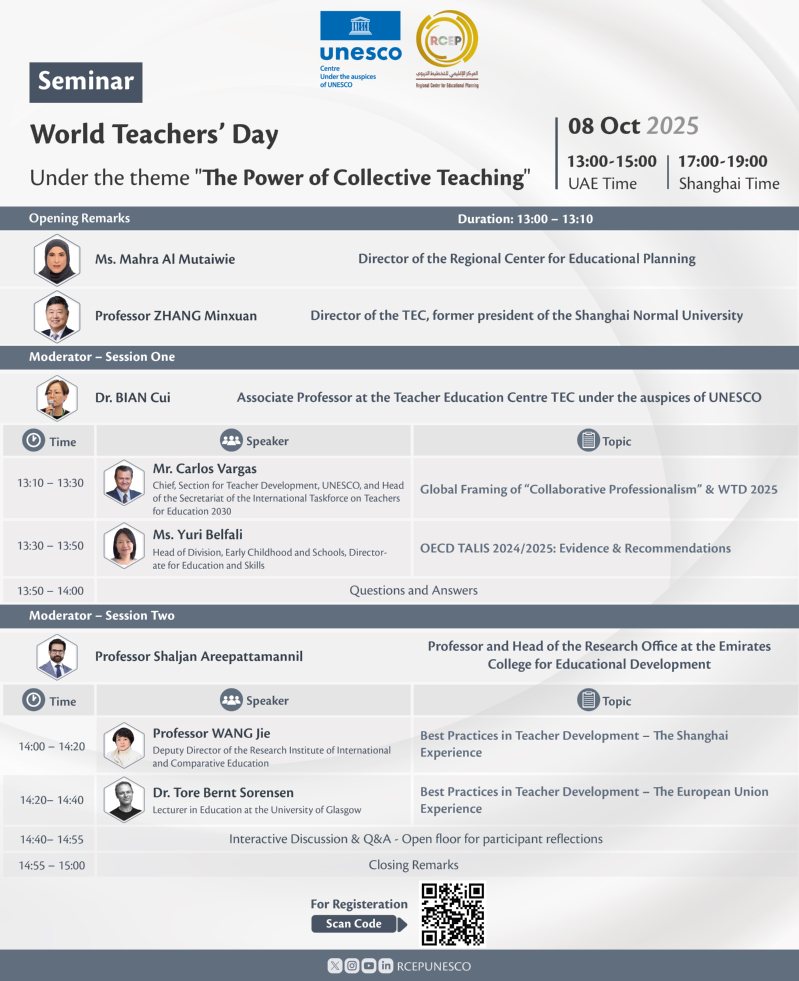
The forum was opened with remarks from Professor ZHANG Minxuan, Director of TEC, and Ms. Mahra Al Mutaiwei, Director of RCEP. Both directors highlighted that the teaching profession is currently facing a range of challenges, from teacher shortages and quality improvement to adapting from traditional pedagogical models to embracing new technological revolutions. Against this backdrop, they stressed that fostering effective collaboration among teachers is not only a key strategy to address these challenges but also a core mechanism for supporting professional development and enhancing the quality of education.
The first session, moderated by Prof. BIAN Cui of TEC, focused on the macro-perspectives of international organizations and evidence-based research. Mr. Carlos Vargas, Head of the UNESCO Teacher Task Force (TTF), elaborated from a global perspective on the necessity of and pathways toward developing collaborative professionalism, sharing practical case studies on when and where such collaboration can be effectively implemented. Ms. Yuri Belfali, Head of the Division for Early Childhood and Schools at the OECD, presented key findings from the latest Teaching and Learning International Survey (TALIS 2024), offering insightful international comparative data on critical themes such as teacher job satisfaction, workload, willingness to collaborate, and readiness to use Artificial Intelligence (AI).
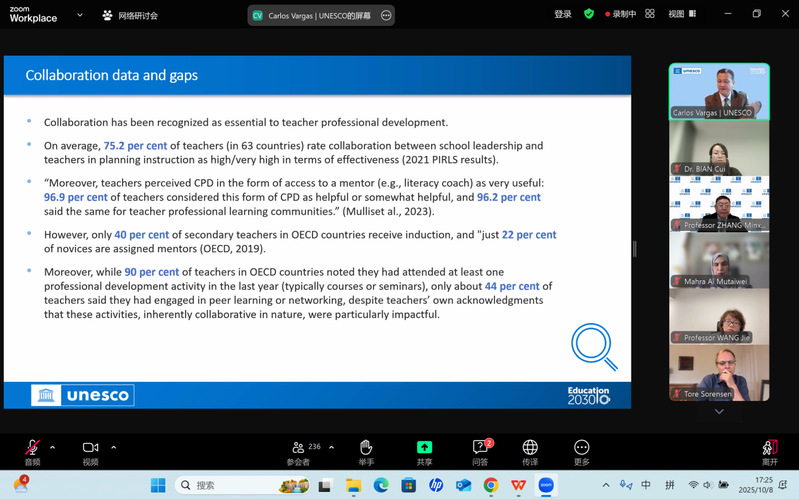
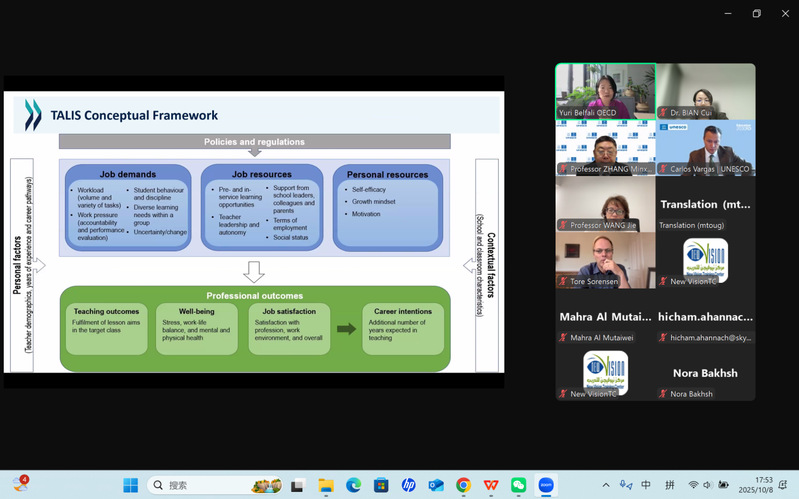
The second session, moderated by Professor Joseph Agbenyega from the Emirates College for Advanced Education, delved into local and regional mechanisms for teacher collaboration and governance. Professor WANG Jie from TEC delivered a presentation on Teaching Research Groups (TRGs) in China: An Institutionalized Mechanism for Collaborative Teacher Learning. She systematically introduced the concept, formation, and operational model of TRGs, which are prevalent in Chinese primary and secondary schools. Through a comparative analysis with Western models such as Professional Learning Communities (PLCs) and Lesson Study, she explored the challenges, opportunities, and future development paths for this traditional system in the context of emerging topics like AI and Social-Emotional Learning (SEL). Dr. Tore Bernt Sorensen from the University of Glasgow analyzed the European Union's Erasmus+ Teacher Academies initiative as a prime example of experimentalist governance. He shared insights into the EU's soft governance measures for teachers, the policy-learning effects generated by the program, and its strategic intent to integrate the teaching profession into the EU's decision-making framework.
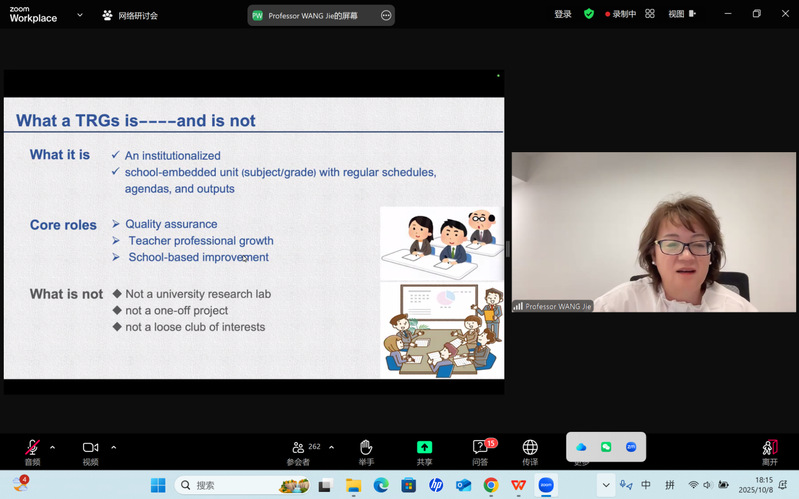
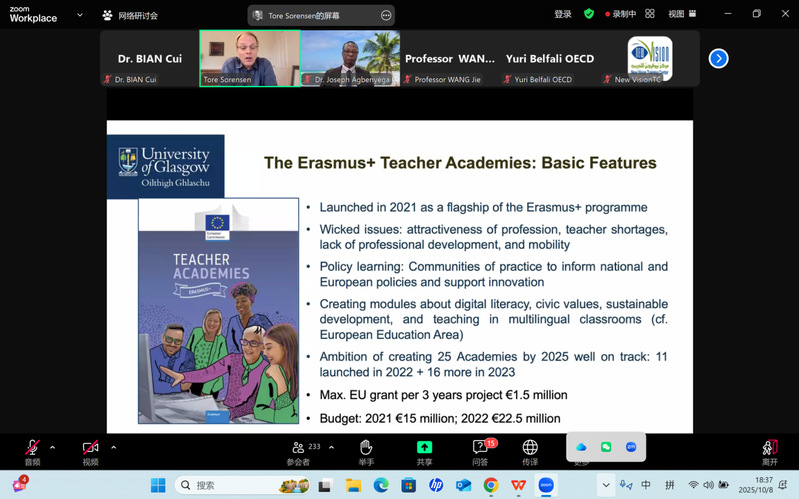
In the subsequent discussion sessions, the experts engaged in a lively and in-depth exchange on critical questions, including how evidence-based research can better inform education policy-making, how teacher collaboration can drive the transformation of the teaching profession and the education system at large, the development of innovative teacher governance mechanisms, and how to better align teacher policies with classroom practices.
This forum, marking the inaugural major collaboration between TEC and RCEP, concluded with great success. In their closing remarks, both Directors affirmed that this is just the beginning. They expressed a shared commitment to further deepening their collaboration, establishing a sustainable mechanism for partnership, and jointly fulfilling their core missions as UNESCO Category 2 Centres to contribute to the achievement of the 2030 Sustainable Development Goal for Education (SDG 4).
